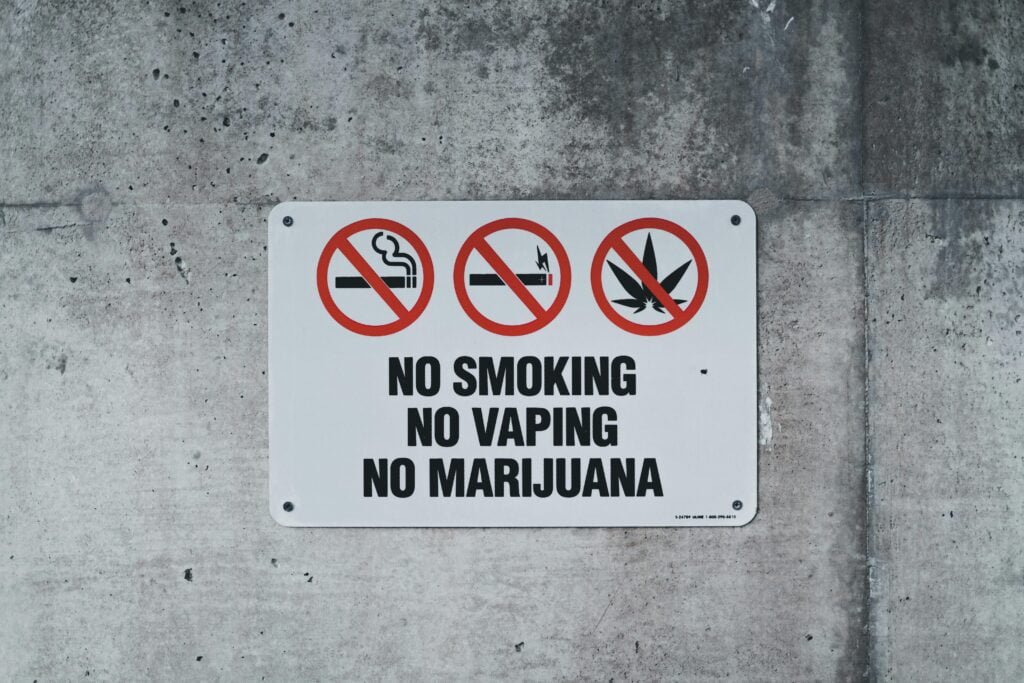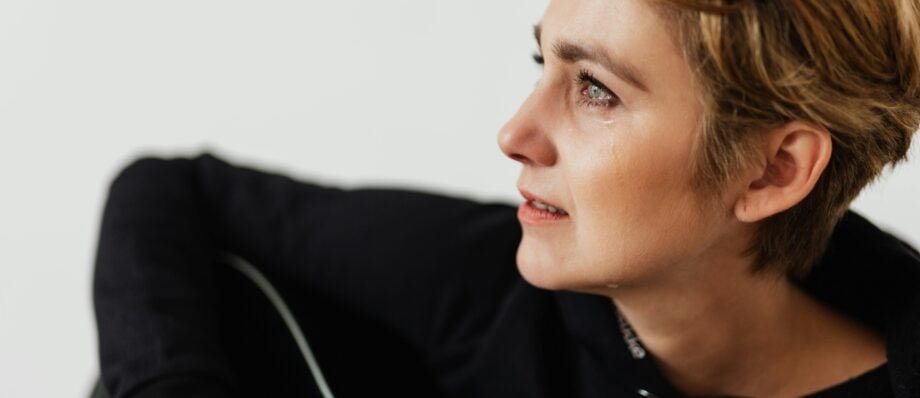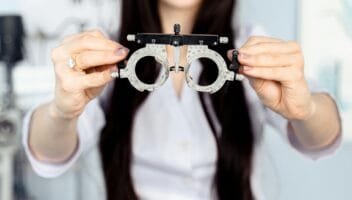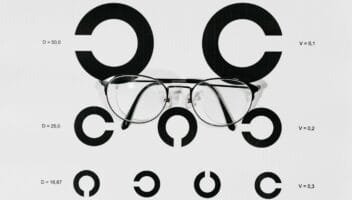Can you imagine living with a silent enemy? You won’t even know that it exists until it’s too late, and you lose something precious. That’s exactly what ocular hypertension is!
Ocular hypertension is a sneaky condition without any signs or symptoms that affect millions of people. The elevated pressure in your eyes is doubly dangerous because, without regular eye exams, you might not be able to catch it in time. If you have elevated eye pressure, it will increase your risk of conditions like glaucoma and might even steal your vision.
This ocular hypertension thingy sounds scary right?
Don’t worry; we are here with all the info about risks, diagnosis, treatment, and management of elevated eye pressure. We will share simple steps that will go a long way in protecting your eyes and vision.
- What is Ocular Hypertension?
- How Common is Ocular Hypertension?
- Signs and Symptoms: Can You Feel Ocular Hypertension?
- Causes or Risk Factors for Ocular Hypertension
- 1. Age: The older you are, the higher the risk of ocular hypertension
- 2. Family History: Ocular hypertension is in your Genes
- 3. Medical Conditions: Ocular Hypertension Caused by Other Health Issues of the Eyes
- 4. Eye Injuries: Past Trauma Can Have Lasting Effects on Your Eye Pressure
- 5. Medications: Some Drugs Can Raise Eye Pressure
- 6. Eye Anatomy: The Shape of Your Eye Might Affect Your Risk of Ocular Hypertension
- How is Ocular Hypertension Diagnosed?
- Is Ocular Hypertension the Same as Glaucoma?
- 5 Treatment Options for Ocular Hypertension
- Ocular Hypertension in Children
- 5 Most Common Myths and Misconceptions about Ocular Hypertension
- Conclusion: Keep an Eye on Your Eye Health!
What is Ocular Hypertension?
Most of us are familiar with the word hypertension – high pressure or elevated pressure. Ocular means your eyes. So, together, they refer to the condition where you have higher than normal pressure in your eyes.
There is a clear fluid in your eyes – aqueous humor. This humor fluid is responsible for ensuring the smooth working of your eye. Usually, your eyes keep the aqueous humor levels balanced by making new fluid as they drain the old fluid. But sometimes, this system breaks down. It could be due to structural challenges like drainage channels or an eye injury.
Such a situation results in higher pressure in your eye, and you get ocular hypertension.
How Common is Ocular Hypertension?
Because we don’t often hear about it, it is easy to assume that ocular hypertension must be a rare condition. But, in reality, it is much more prevalent. Some studies have found that as high as 2 to 3% of grown-ups above the age of 40 have elevated eye pressure.
As this condition has no symptoms like pain or discomfort, many of us can go on living a normal life without realizing the increasing pressure in our eyes. If you are getting regular eye exams, your doctor might catch it early. Otherwise, you might not realize that you have ocular hypertension until you develop glaucoma or suffer vision loss.
As you grow older, your risk of higher pressure also increases. So you have to keep a closer eye on your eye health.
Signs and Symptoms: Can You Feel Ocular Hypertension?
Ocular hypertension is tricky because there is no discomfort or pain or a sign that warns you something is wrong. For most of the people, there are no symptoms like change in vision. Only during your eye exam, your doctor can measure and diagnose if the pressure in your eye is elevated. Regular exams can help you catch the condition early and start immediate remedial measures.
If you miss your eye exam and fail to catch ocular hypertension early, it can lead to serious complications like glaucoma and cause vision loss by damaging your optic nerve. So, even if it does not cause any symptoms, you should take ocular hypertension seriously.
Causes or Risk Factors for Ocular Hypertension

There is not a single cause or condition that we can hold responsible for ocular hypertension. But, if you are vulnerable to one or a combination of the following risk factors, you are likely to develop elevated eye pressure.
Remember, just because you fall into a category of risk factor, you will not develop elevated eye pressure. The risk factors mean that you should be extra vigilant about keeping your eye exam schedule. This precaution will help you stay ahead, catch it early, and avoid complications.
Now, let us look at the various risk factors for ocular hypertension in detail:
1. Age: The older you are, the higher the risk of ocular hypertension
Aging or getting older is one of the most important risk factors for ocular hypertension. As we age, just like our body our eyes also undergo changes in their physical structures. Specifically, there are tiny channels for draining fluid from our eyes. These channels can lose their efficiency and do not drain the fluid properly.
Just like water can not flow freely out of a clogged sink, fluid can not drain out smoothly through these channels. So, as we age, pressure starts to build up more easily and increases our risk.
Additionally, just like our joints get stiffer and less flexible with age, the tissues of our eyes also lose their flexibility. So, they are not able to handle this elevated pressure resulting from issues of fluid drainage in the eye. This challenge to adapt to changes in eye pressure compounds our risk of ocular hypertension.
2. Family History: Ocular hypertension is in your Genes
Your genes play a big role in determining your risk of elevated eye pressure and glaucoma. Because you can inherit some factors that might lead to this condition, so, if your parents or close relatives have ocular hypertension, you should be extra careful about getting it checked during your eye exams.
For instance, we have understood the crucial role of the fluid drainage system of your eye in maintaining eye pressure. The shape of this drainage system could be an inherited trait. If your parent or sibling has an inefficient eye drainage structure, you might also have that. Just like we resemble our close relatives in the shape of our nose or the texture of our hair, we could inherit similar eye structures also.
Again, the genetic risk does not mean you will definitely get the condition. It is a call for you to be diligent with your eye exams.
3. Medical Conditions: Ocular Hypertension Caused by Other Health Issues of the Eyes
Our body is a very complex and interconnected mechanism. What health issues affect one system of the body will definitely influence the health of other systems. Your eyes are not immune to this. Some health conditions like diabetes, hypertension or high blood pressure, thyroid issues, heart disease, and sleep apnea can increase your risk of elevated eye pressure.
Diabetic retinopathy and elevated blood sugar levels can damage the blood vessels in the eye and disrupt fuild dainage. Chronic hypertension also damages blood vessels and leads to glaucoma. Hyperthyroidism can cause swelling of eye tissues, which will affect the eye pressure. Some medications for treating heart disease can affect the internal pressure of the eye.
So, to protect your eyes, you have to take care of your overall health. If you already have these conditions, then you should manage them efficiently with the proper medical advice. This care will minimize your risk.
4. Eye Injuries: Past Trauma Can Have Lasting Effects on Your Eye Pressure
Injuries to the eye can have a lasting effect and can impact your eye health much later in life, even after years. So, a past eye injury might put you at risk of ocular hypertension today.
An eye injury to the delicate structures of your eye can damage your eyes, specifically the tiny channels that manage fluid drainage. The effect might not be immediately visible. But over time, the damage might cause further deterioration of the delicate structures of the eye. So, eventually, you will find that your eye’s fluid drainage capabilities are compromised. And you have elevated eye pressure.
So, always take precautions to wear protective eyewear while you play sports or when you are at work. If you get an eye injury, remember to consult your eye doctor and follow the treatment protocols diligently.
5. Medications: Some Drugs Can Raise Eye Pressure
Medications like steroid eye drops are commonly used to treat eye issues such as inflammation and allergies. As a side effect of these medications, your eye pressure can get elevated, and you are at risk of ocular hypertension. A few other medications, like anti-depressants, Parkinson’s medications, and hypertension medications, can also cause ocular hypertension.
Now, don’t get spooked and take these medications. That is dangerous!
If you are getting treated for any of these conditions with medications, raise the concerns with your doctor. Your medical professional can help you arrive at a medication plan that addresses your concerns.
6. Eye Anatomy: The Shape of Your Eye Might Affect Your Risk of Ocular Hypertension
Your eye’s shape and structure can have a huge impact on how efficiently it can draw the fluid. Specifically, if you have narrow drainage angles, it will disrupt the flow of fluid from your eye.
Let us think of your eye like a sink. If the drain of the sink is wide, then the water will flow down easily. If this drain is narrow, then the water will drain more slowly. So the drain gets filled up and gets clogged. Similarly, a narrow drainage angle can disrupt fluid movement and cause pressure buildup in the eye.
Similarly, other anatomical factors, such as the thickness of your cornea (the clear part of the eye) and the position of your iris (the colored part of the eye), can also affect your risk of elevated eye pressure.
Just like genetic factors, you cannot change the physical structure of your eye. But, you can protect your eye health with regular consultations with your doctor to keep track of your eye anatomy.
How is Ocular Hypertension Diagnosed?

Ocular hypertension does not cause any changes that will disrupt your vision. So, that makes it even more important that it should be reviewed at your regular medical exam. Your eye doctor can make you undergo a few different tests and judge the extent or presence of ocular hypertension in your eye.
Don’t be alarmed; these tests are simple, painless, and quick! Here are a few eye exams that your medical practitioner might suggest:
Tonometry
This test is the primary test for determining your eye pressure levels. Your doctor will use a small device to gently touch your eye and measure the pressure. Sometimes, a puff of air might also be used for the same purpose. Don’t let the name intimidate you. It is a very simple and quick test, and you won’t feel any pain.
Ophthalmoscopy
This test will help your doctor assess the damage to your optic nerve. During the test, the doctor will examine your optic nerve and the back of the eye. This exam helps to check if there are any signs of damage to the eye.
Visual field test:
This eye exam is used to determine if there is any vision loss. Elevated eye pressure could be one of the causes of elevated eye pressure. So, a visual field test examines your side vision or peripheral vision to ensure that there is no vision loss.
Gonioscopy:
Fluid drainage is one of the important factors in elevated eye pressure. During Gonioscopy your doctor examines the part of the eye or the angle where your cornea meets your iris. Examining this part of the eye helps the doctor to see if there is any fluid drainage.
Pachymetry:
The thickness of your cornea can affect the ocular hypertension test results. Pachymetry helps your doctor measure the thickness of your cornea and how it is affecting your test results.
Is Ocular Hypertension the Same as Glaucoma?
A common question and confusion for many!
Glaucoma and elevated eye pressure are related. But they are not in the same condition.
Ocular hypertension is a warning sign that you are at risk of eye damage. If the pressure in your eye is elevated more than normal levels, it indicates a possibility of damage, but there is generally no damage yet.
Glaucoma is diagnosed when this elevated eye pressure begins to affect your optic nerve. The visual information from your eye reaches your brain through the optic nerve. If this connection between your brain and the eye is lost, you are at risk of losing your vision.
It’s true; just because you have ocular hypertension, you will not develop glaucoma. Most people do not. However, having elevated eye pressure puts you at a higher risk of developing glaucoma and losing your vision. So, it is crucial to address ocular hypertension and keep track of your eye health with the help of your medical professional.
5 Treatment Options for Ocular Hypertension

A diagnosis of ocular hypertension can be scary. But thankfully, today, we have the medications and treatment plans that will help you manage it. The goal of the treatment will be to reduce your risk of glaucoma. With the right combination of medical advice and lifestyle changes, you will be able to live comfortably with the condition and minimize the risk of developing glaucoma.
1. Monitor
Once you are diagnosed with elevated eye pressure, the initial step is to monitor. If the rise in pressure is very slight and you do not have any other health condition, your doctor will suggest scheduling regular checkups to keep the situation under control.
2. Eye Drops
Medicated eye drops help to manage the fluid levels in your eye. They will manage eye pressure by reducing the quantity of fluid in your eye or by helping your eye to drain the fluid better. This will help to manage the eye pressure.
3. Laser Treatment
If your doctor finds it necessary, laser treatment might also be suggested. It is a simple procedure that will help to lower the pressure by improving the fluid drainage from your eye.
4. Lifestyle Changes
Along with medical treatments, lifestyle changes can help you manage elevated eye pressure. A few simple ones that your doctor might consider are – physical activity, abstaining from smoking, quitting coffee etc.
5. Manage other health conditions.
Conditions such as diabetes and hypertension can add to the complications of ocular hypertension. So, managing them will go a long way in protecting your eye health.
Ocular Hypertension in Children
The occurrence of Ocular hypertension is most commonly tied to age. The older you are, the more likely that you are at risk of higher eye pressure. But it does not mean children do not get this condition. Children do get it at much lower rates than grown-ups. But some children might get ocular hypertension due to:
1. Eye injuries can damage the child’s eye drainage system, resulting in higher pressure in the eye.
2. Genetic conditions such as Sturge-Weber syndrome can increase the child’s risk of ocular hypertension.
3. If your child is being treated with steroid-based medication for conditions like asthma, they might develop higher eye pressure.
4. Some eye conditions like tumors or inflammation in the eye or conditions like glaucoma can raise the pressure in your child’s eye.
The treatment for a diagnosis of Ocular hypertension in children is similar to that of growing up. Let your eye doctor do the required tests, and then make sure that your child follows their medical advice.
5 Most Common Myths and Misconceptions about Ocular Hypertension

As with all medical conditions, there are many myths and misconceptions about ocular hypertension. But don’t be alarmed; we are here to clear up the most common ones:
Myth 1: If you have Ocular hypertension, you will definitely get glaucoma.
It’s true – Ocular hypertension puts you at a higher risk of glaucoma. However, not everyone who has this high-pressure condition will eventually develop glaucoma.
Myth 2: You can feel changes in your eye pressure when you have Ocular hypertension
Truth: You can not really notice any changes in your eye if you have higher eye pressure. So, you need to keep your regular eye checkup schedule to catch this early.
Myth 3:You will get Ocular hypertension only if you are old.
Truth: Elevated eye pressure is more common in older people. But it is possible for people of all ages to develop this condition.
Myth 4: People with Ocular hypertension can not use contact lenses for vision correction
Truth: Your doctor’s opinion is important in making this decision. You should wear contacts or glasses as approved by your medical professional.
Myth 5: If you get Ocular hypertension, you are going to go blind.
Truth: This is not true at all. If you get timely treatment and follow the advice of your doctor, you can still maintain your vision.
Conclusion: Keep an Eye on Your Eye Health!
Conditions such as ocular hypertension will not always cause obvious discomfort. Nor do they always cause any changes in your vision right at the start. But, by the time symptoms like vision loss are noticeable, it might be too late. This delay will limit your treatment options and increase your risk of other eye conditions.
The only way to catch elevated eye pressure in time is to have regular eye checkups. If you keep tabs on your eye health, you can catch these conditions early. Which will, in turn, prevent serious complications and save you from conditions like glaucoma.
Don’t be scared by a diagnosis of ocular hypertension. Let your doctor prescribe a treatment plan and work with your medical practitioner to devise a proper eye care regime. If you follow these guidelines, you can keep your eyes healthy and vision sharp for many years in spite of elevated eye pressure.




